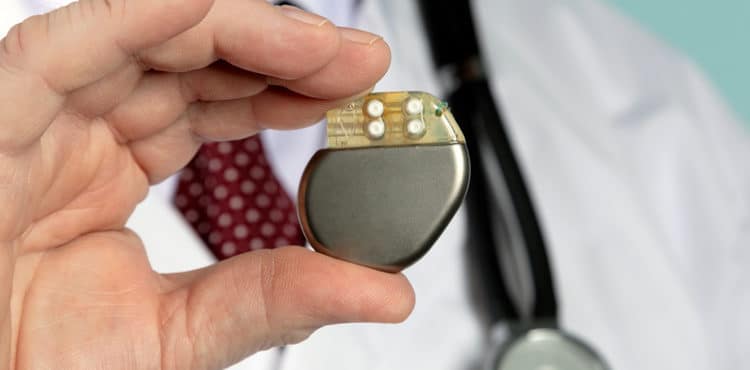On May 7, 2019, the U.S. Food and Drug Administration (FDA) issued a safety communication about issues with certain Medtronic implantable pacemakers or cardiac resynchronization therapy pacemakers (CRT-Ps). According to the agency’s alert, the issue may cause the devices’ batteries “to drain more quickly than expected without warning patients or health care providers.” Affected patients and their families may be eligible to pursue compensation for damages with the help of a defective medical device attorney.
If you or a loved one have been adversely affected by a potentially defective medical device, contact Attorney Group to learn about your options. We offer free, no obligation consultations. We can help answer your questions, and if you choose to pursue a claim we can connect you with an affiliated attorney who can assist you throughout the legal process.
Loss of Function Could Lead to Serious Health Risks
The FDA receives hundreds of thousands of medical device reports each year of suspected medical device-associated deaths, injuries and malfunctions. According to the safety communication issued in May 2019, the FDA received three medical device reports in which Medtronic, one of the world’s largest medical device and equipment development companies, reported that health care providers were unable to communicate with the device due to battery depletion. As a result of unexpected battery depletion, the devices could stop functioning and potentially lead to serious health risks.
Medtronic implantable pacemakers or CRT-Ps are medical devices that “pace” for slow heart rhythms and heart failure. The devices are implanted just under the skin and connected to the heart with insulated wires known as leads. Implanted pacemakers and CRT-Ps are powered by batteries, and patients can use remote monitoring systems that help health care professionals monitor battery status and device functioning.
Medtronic implantable pacemaker and CRT-P device models potentially affected include:
- Azure models: W1DR01, W2DR01, W3DR01, W1SR01, W2SR01, W3SR01
- Astra models: X1DR01, X2DR01, X3DR01, X1SR01, X2SR01, X3SR01
- Percepta models: W1TR01, W1TR04, W4TR01, W4TR04
- Serena models: W1TR02, W1TR05, W4TR02, W4TR05
- Solara models: W1TR03, W1TR06, W4TR03, W4TR06
Patients and caregivers are encouraged to check that their home monitoring transmissions are working and on time and to keep the remote monitor plugged in at all times. Patients are advised to seek medical care immediately if they feel lightheaded, dizzy, chest pains, severe shortness of breath. The FDA also suggests that patients discuss their device with their health care provider to determine if the device has been affected.
How Can an Attorney Help?
Medical device makers have a duty to provide safe products. If there are risks of harm associated with their devices, they are required to provide adequate warnings. If a device maker or manufacturer fails to fulfill this duty, it could be held liable in lawsuits for injuries that may result.
People injured by a Medtronic pacemaker, CRT-P or similar device may be eligible to recover money for:
- Medical Expenses
- Lost Wages
- Pain and Suffering
The families of those who have died may be eligible to recover money for funeral expenses and the pain that comes with losing a loved one.
The Time You Have to Pursue a Claim is Limited. Contact Us Today.
For more information, contact Attorney Group. You can fill out the form on this page or contact us by phone or email.
After you contact us, an attorney will follow up to answer questions that you might have. There is no cost or obligation to speak with us, and any information you provide will be kept confidential.
Please note that the law limits the time you have to pursue a claim or file a lawsuit for an injury. If you think you have a case, you should not delay taking action.






